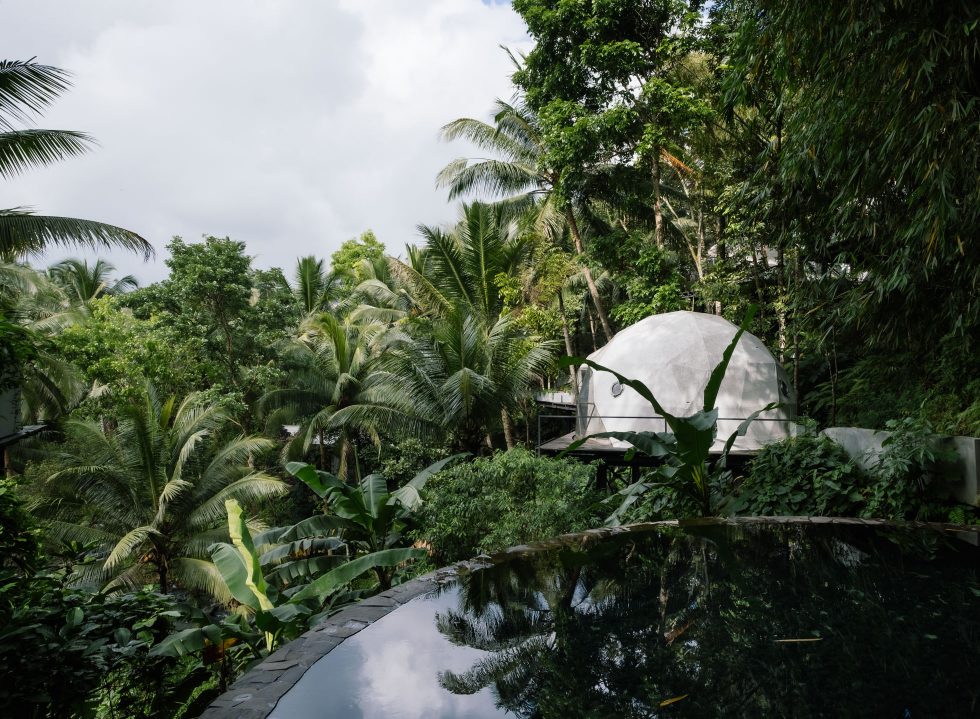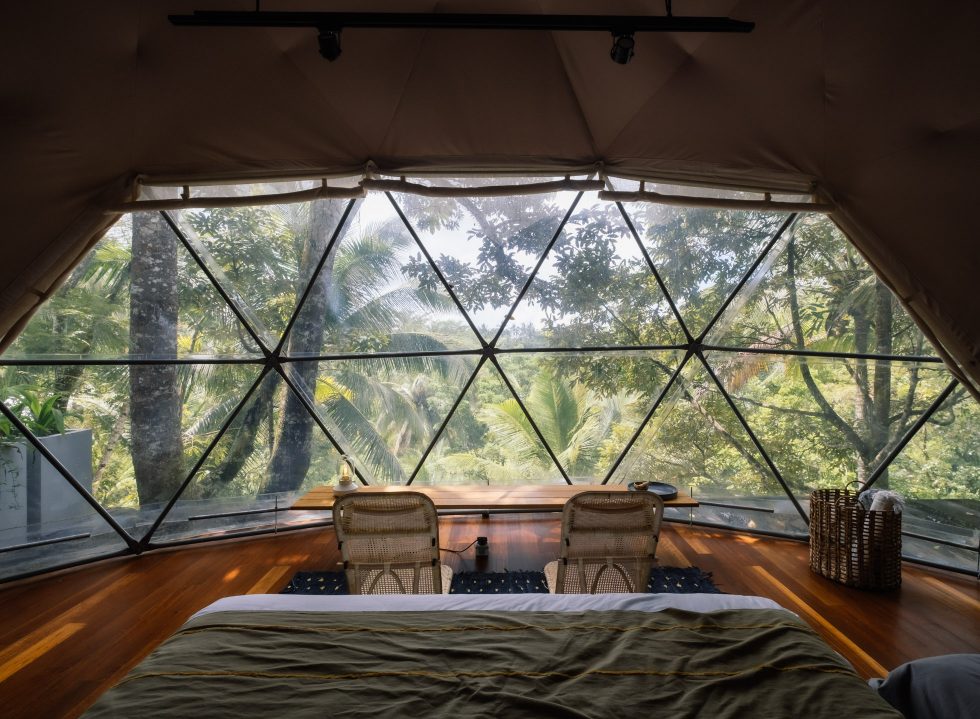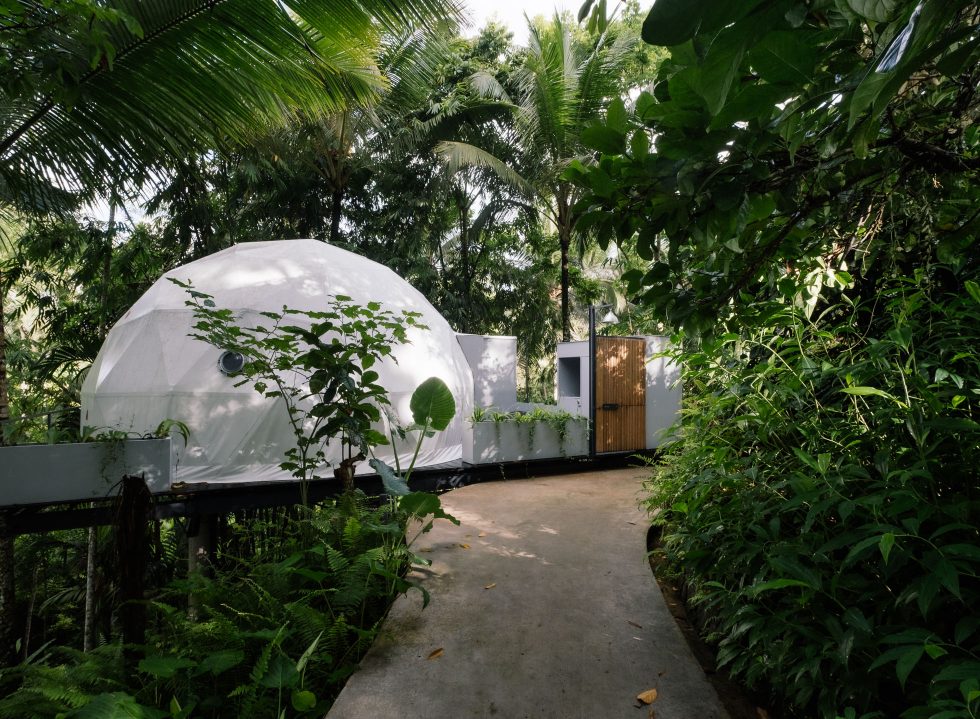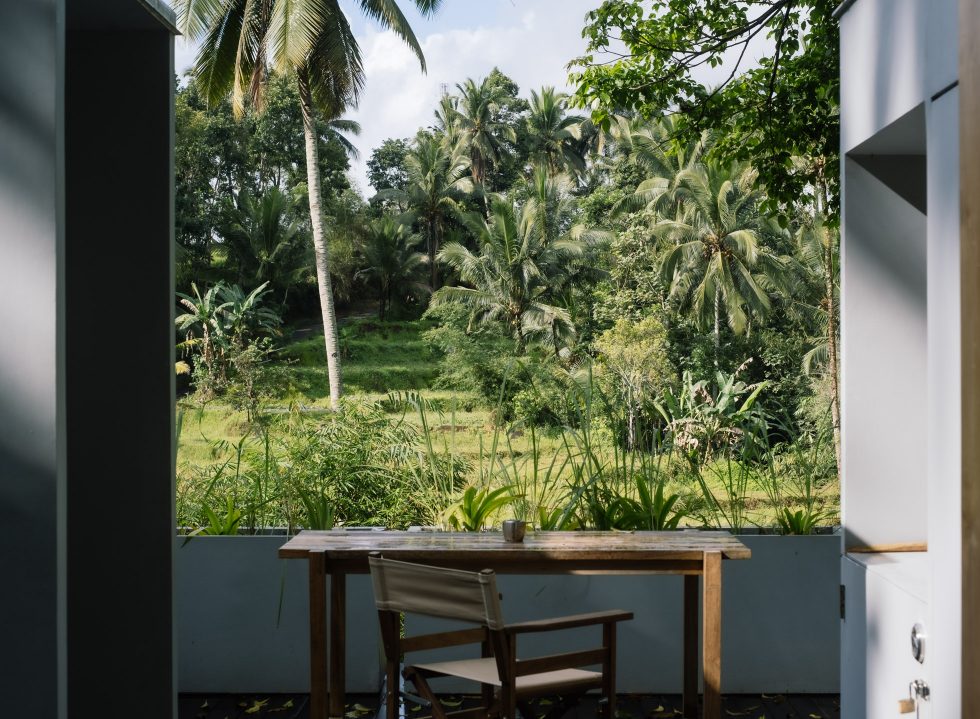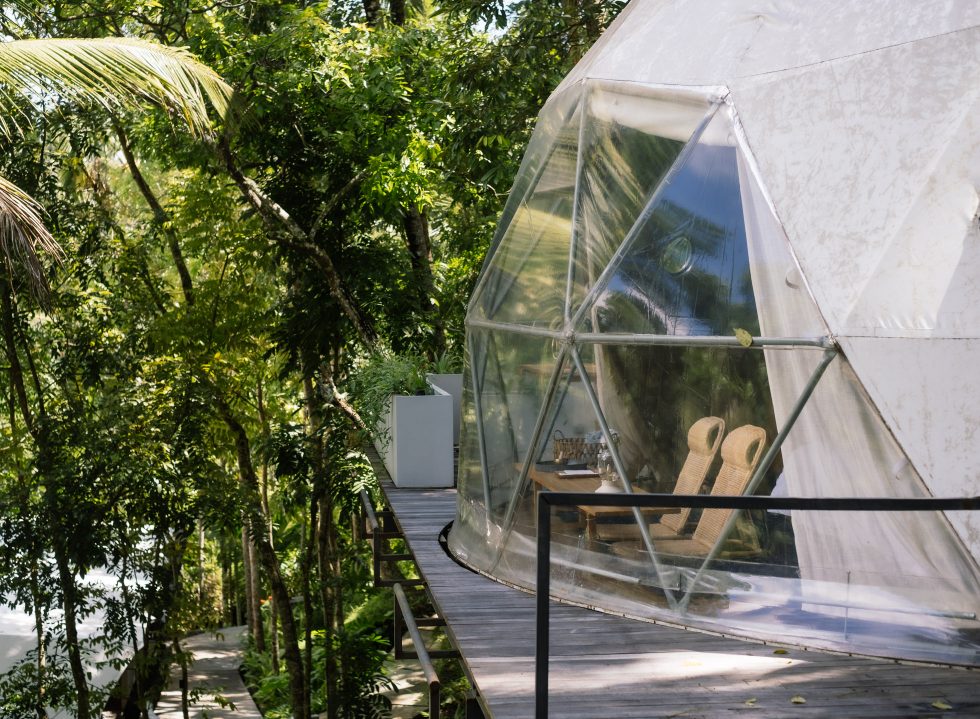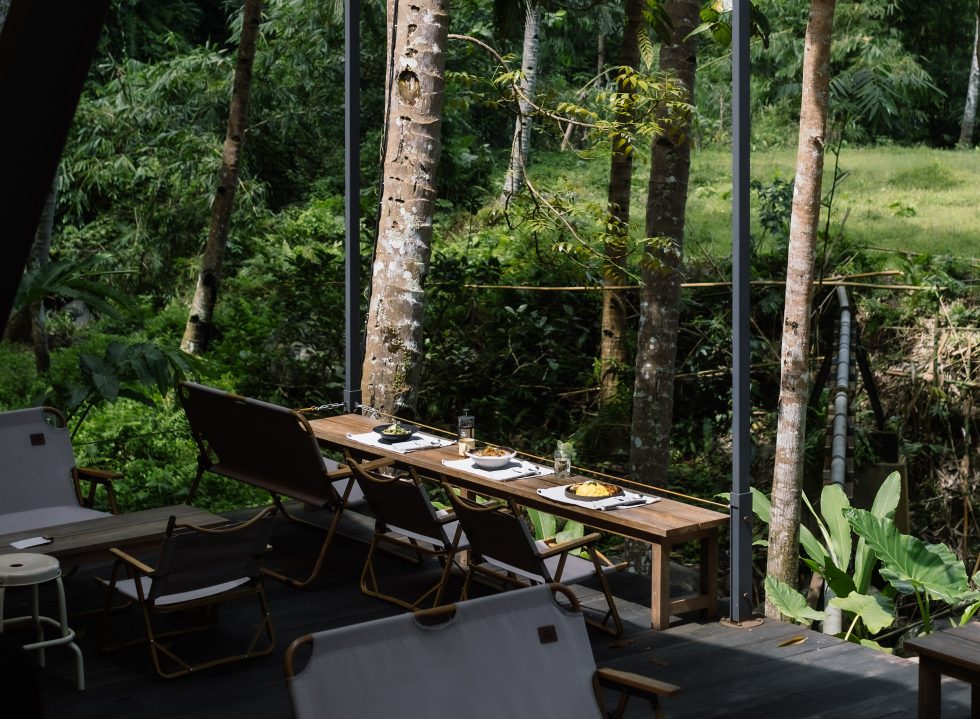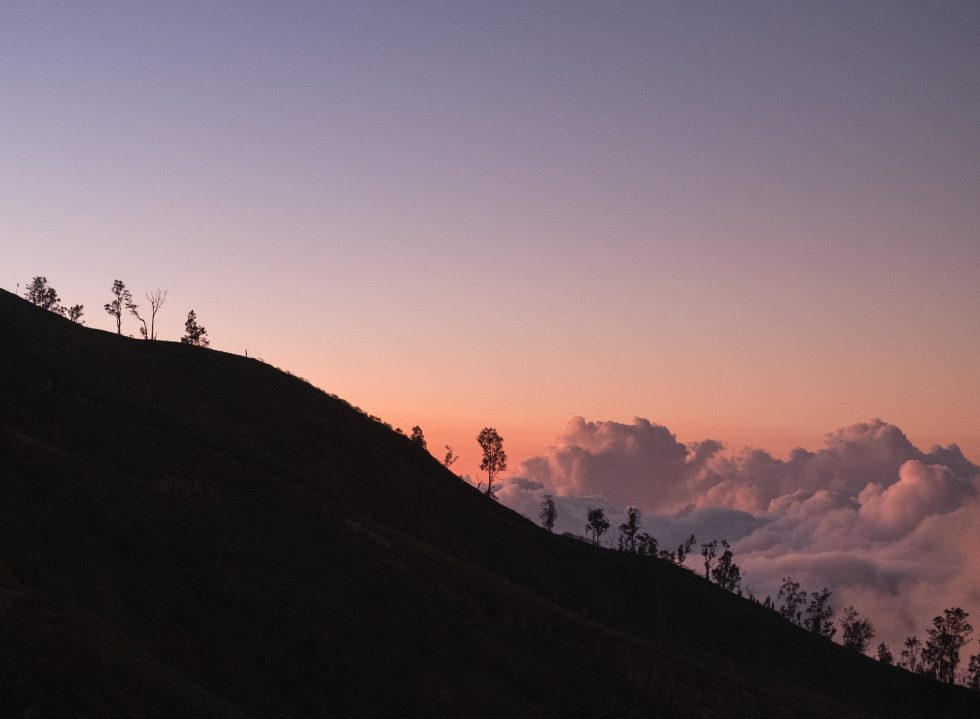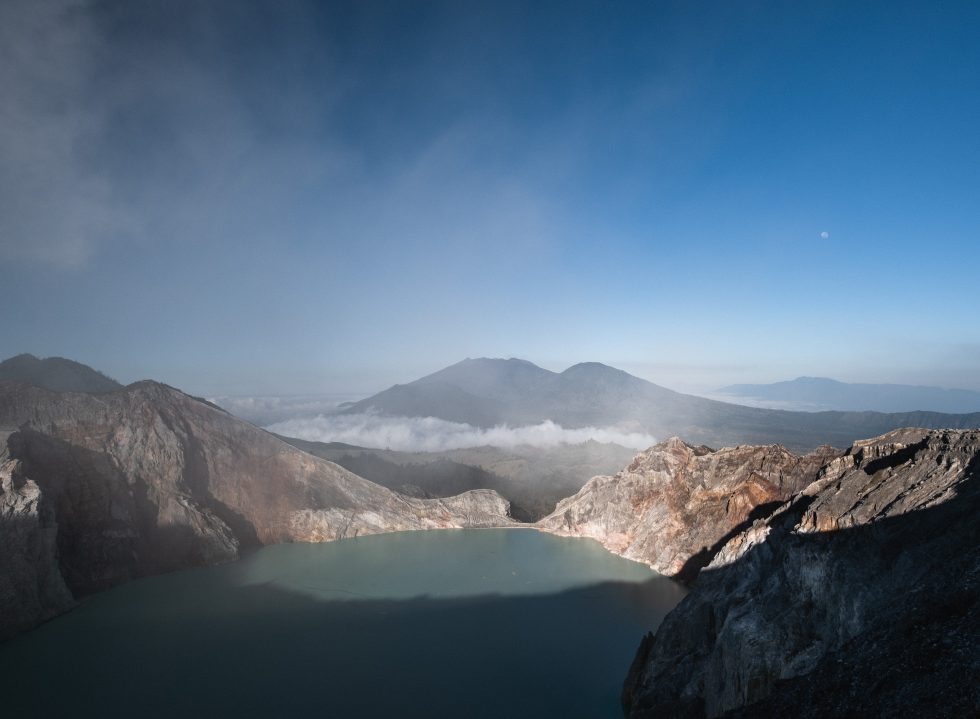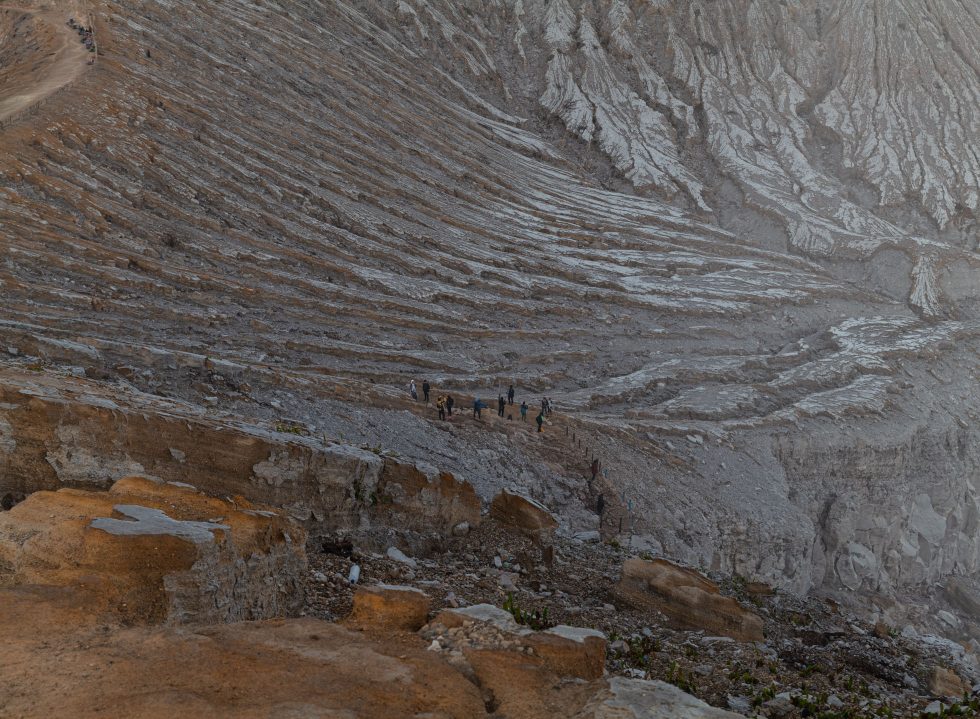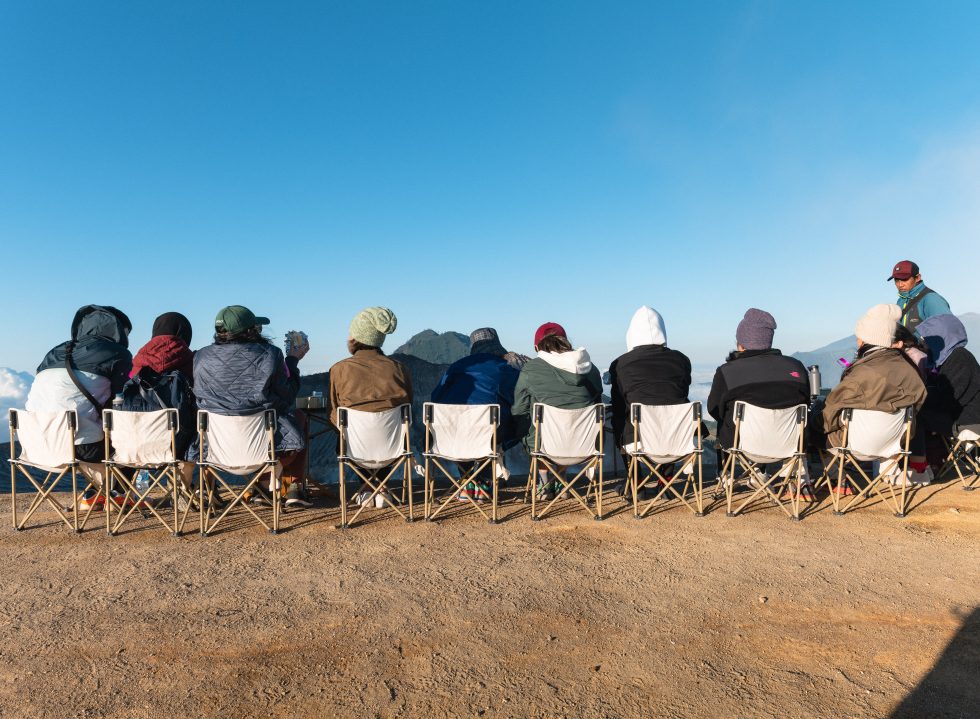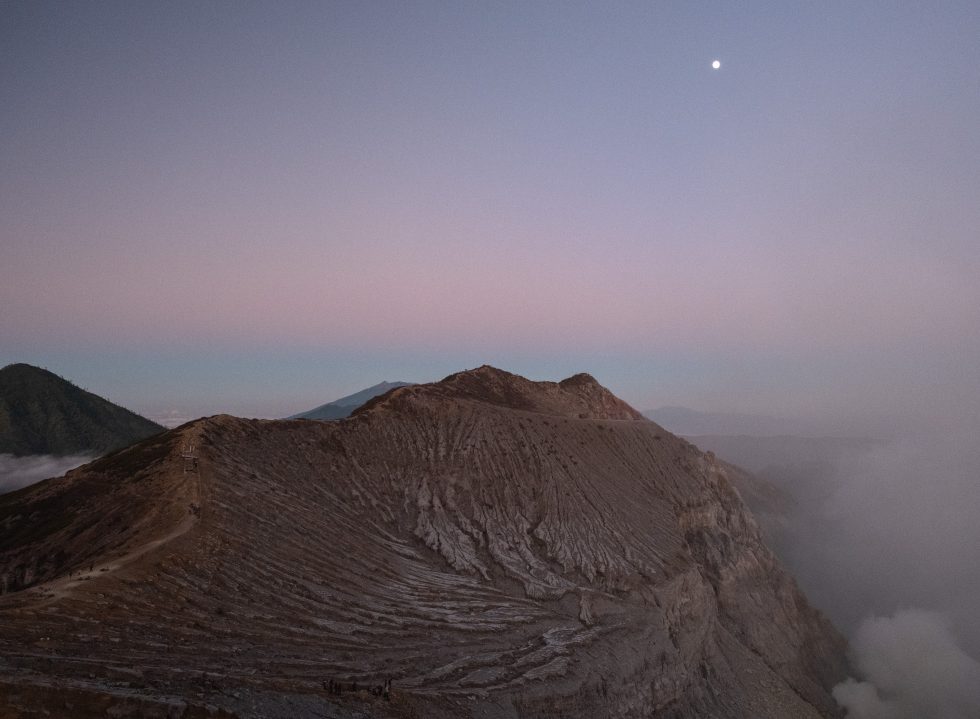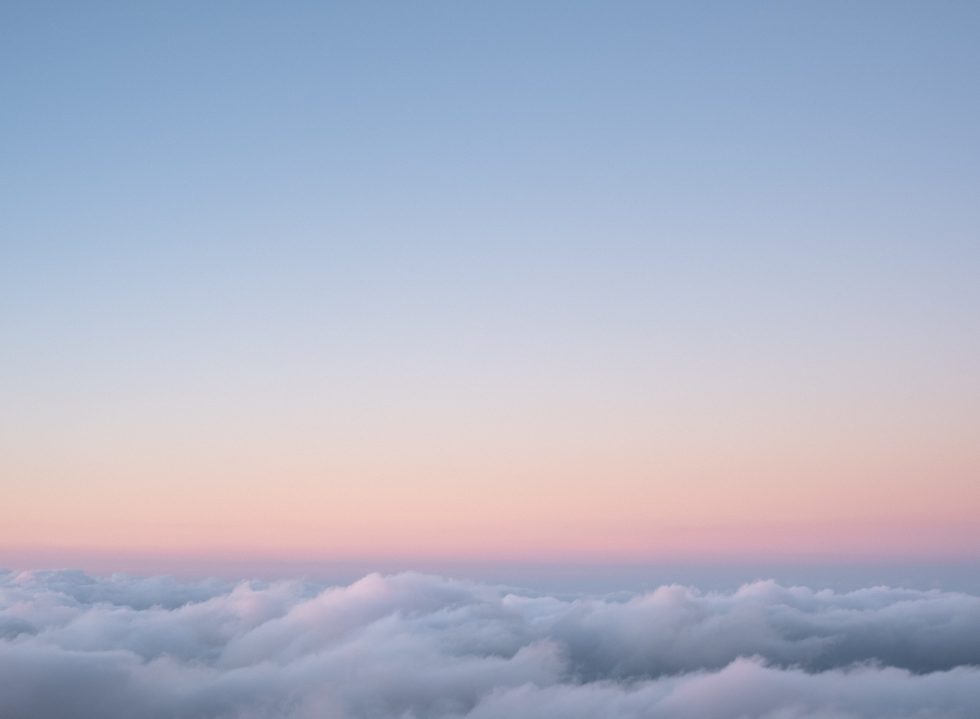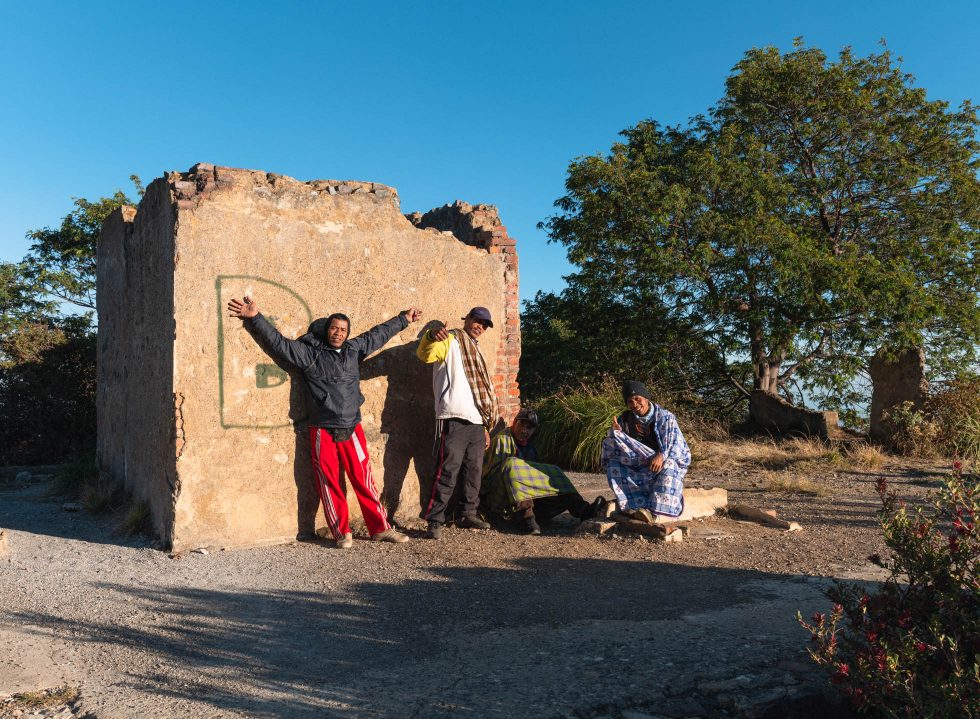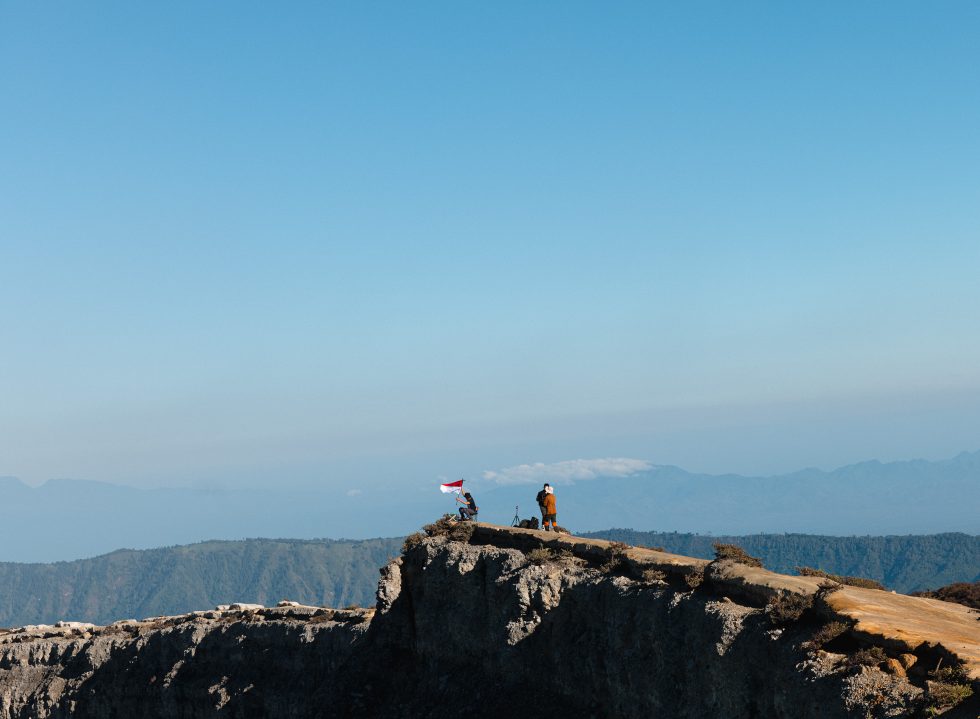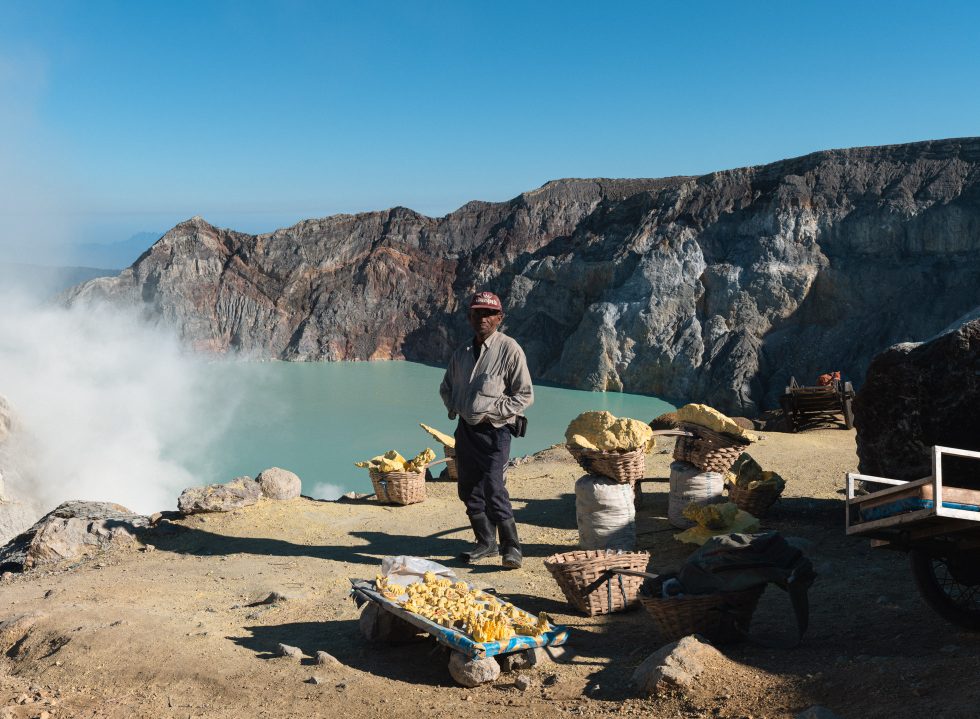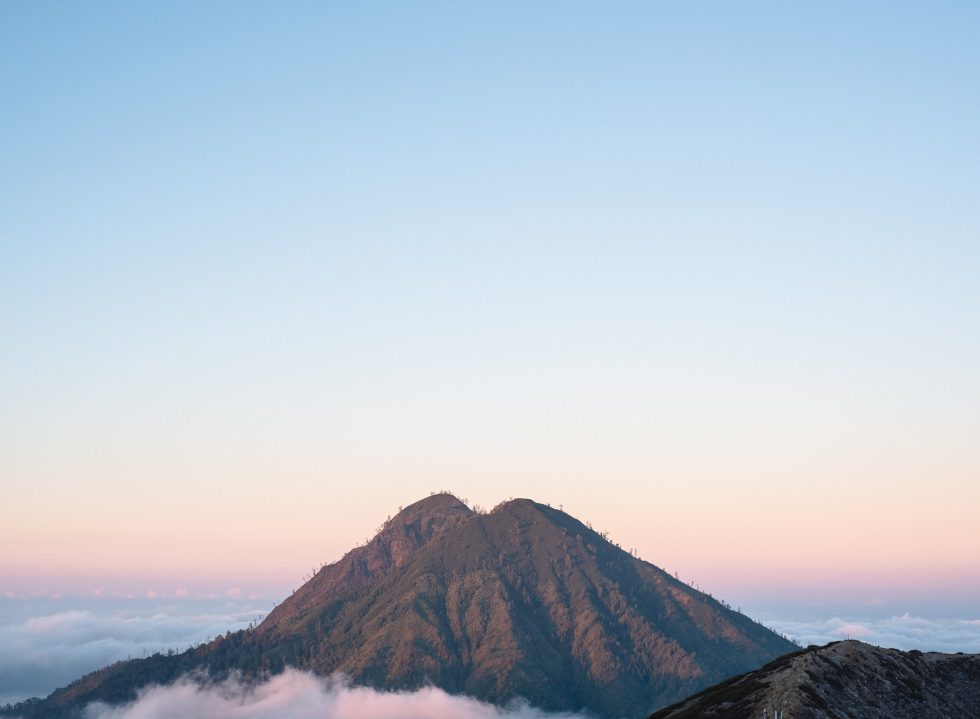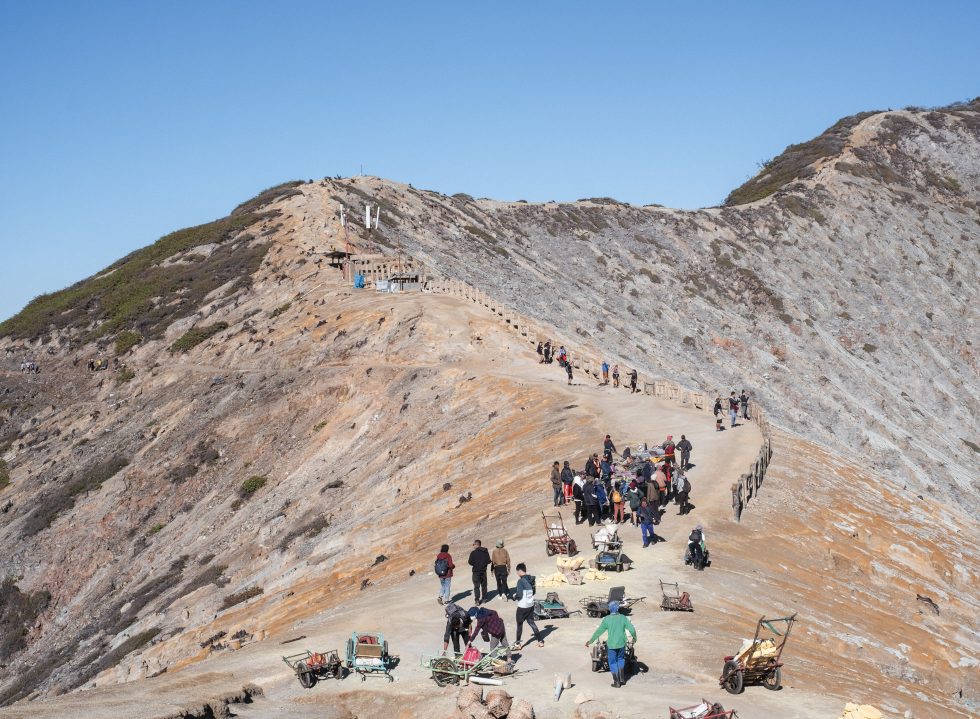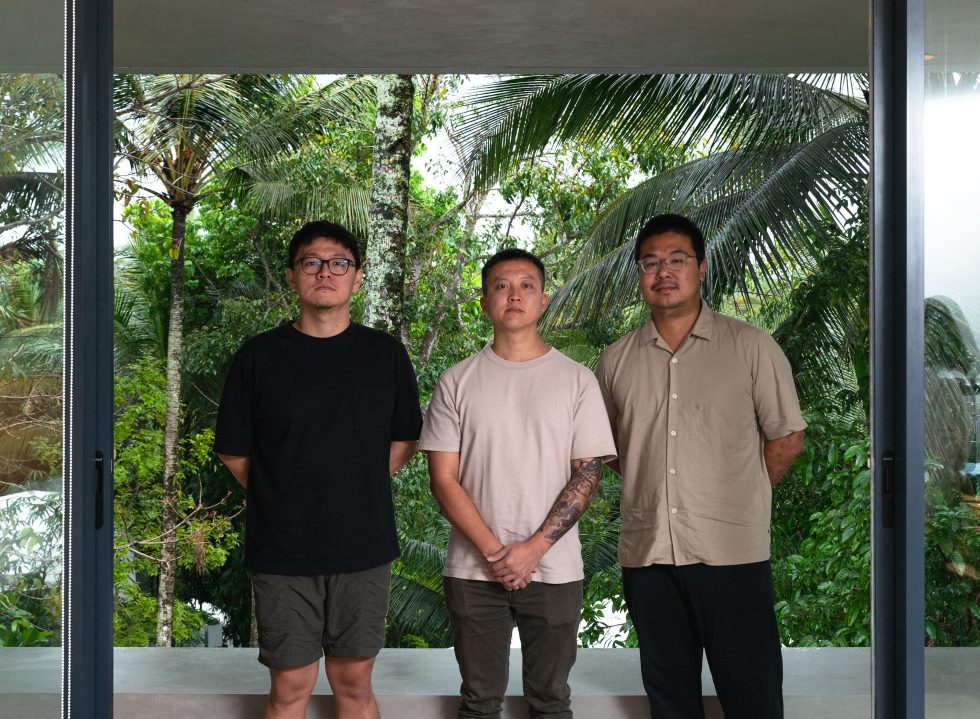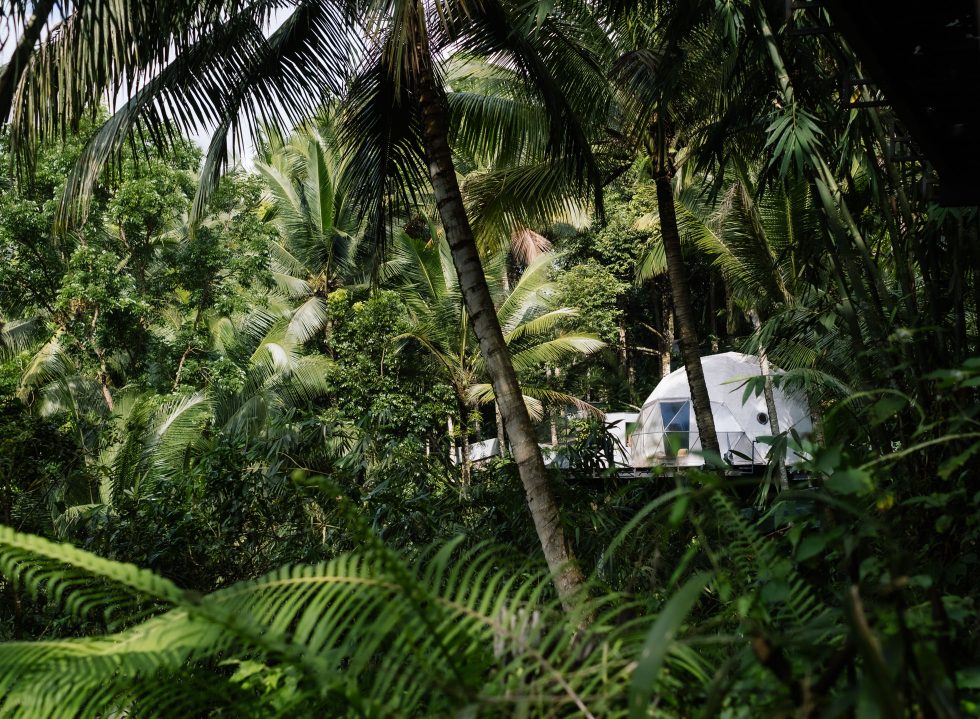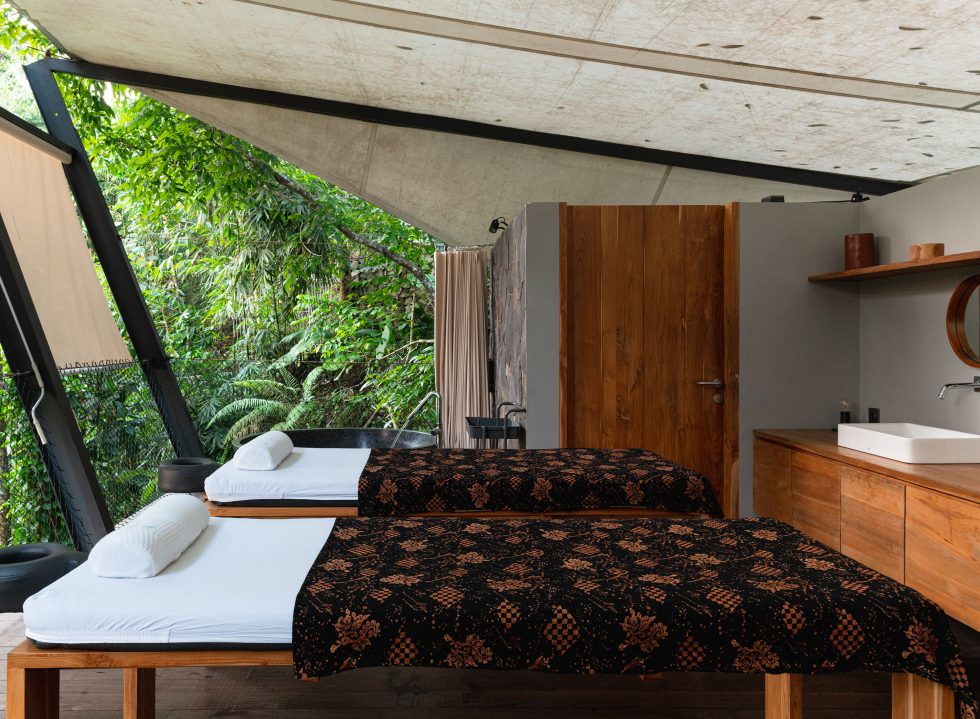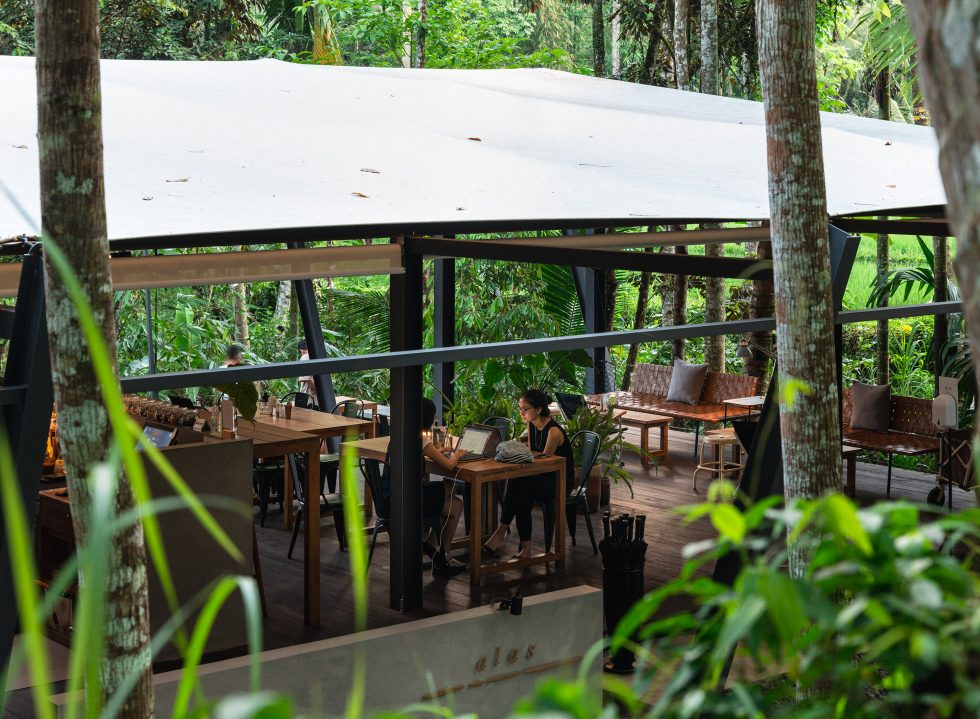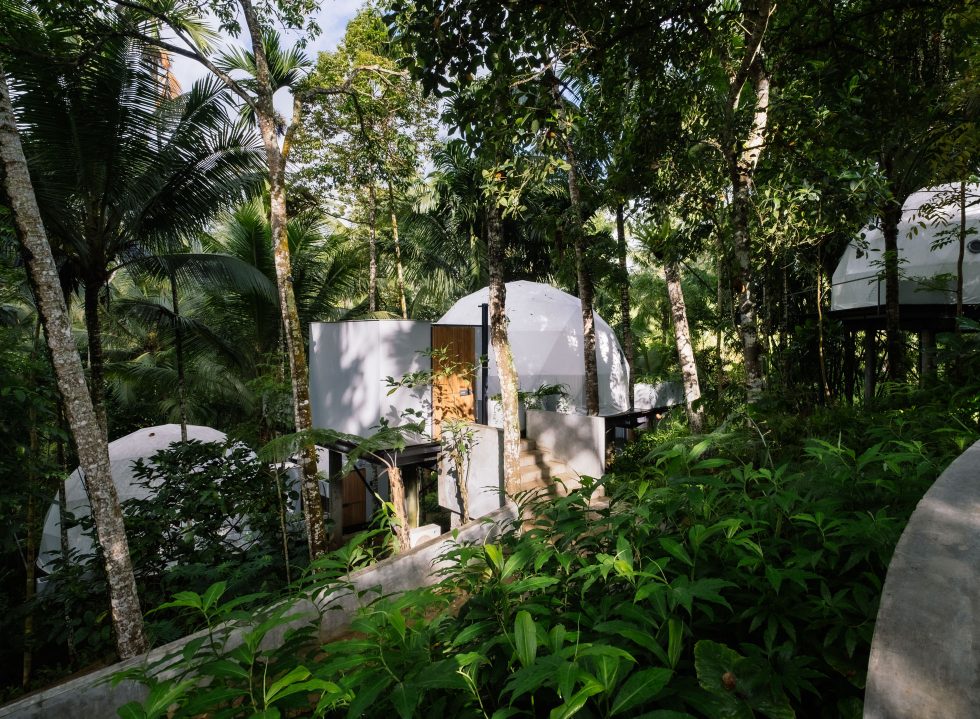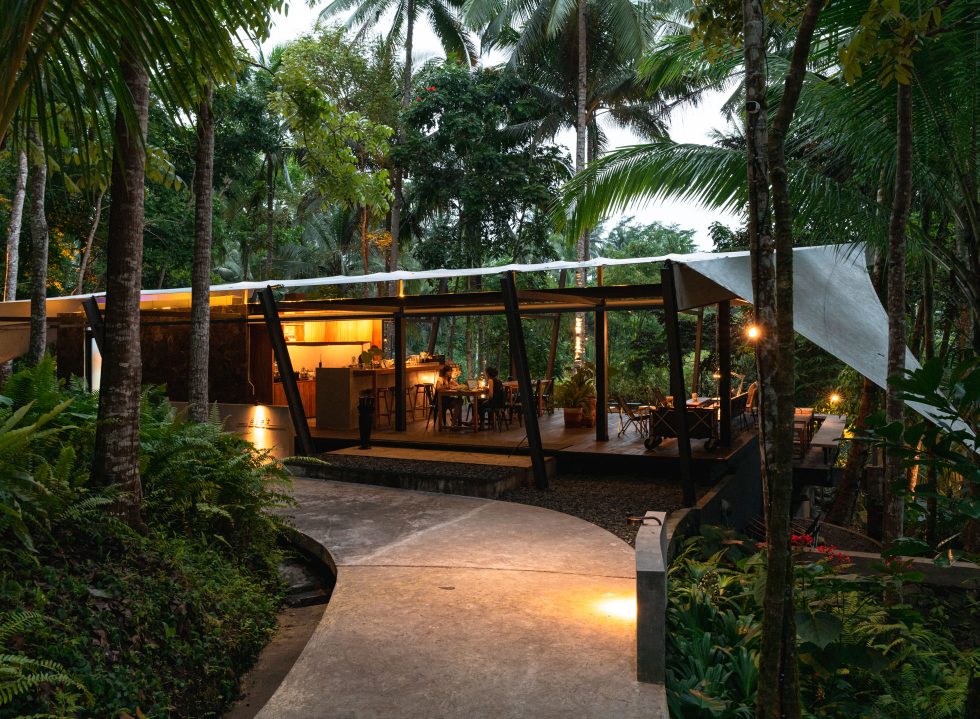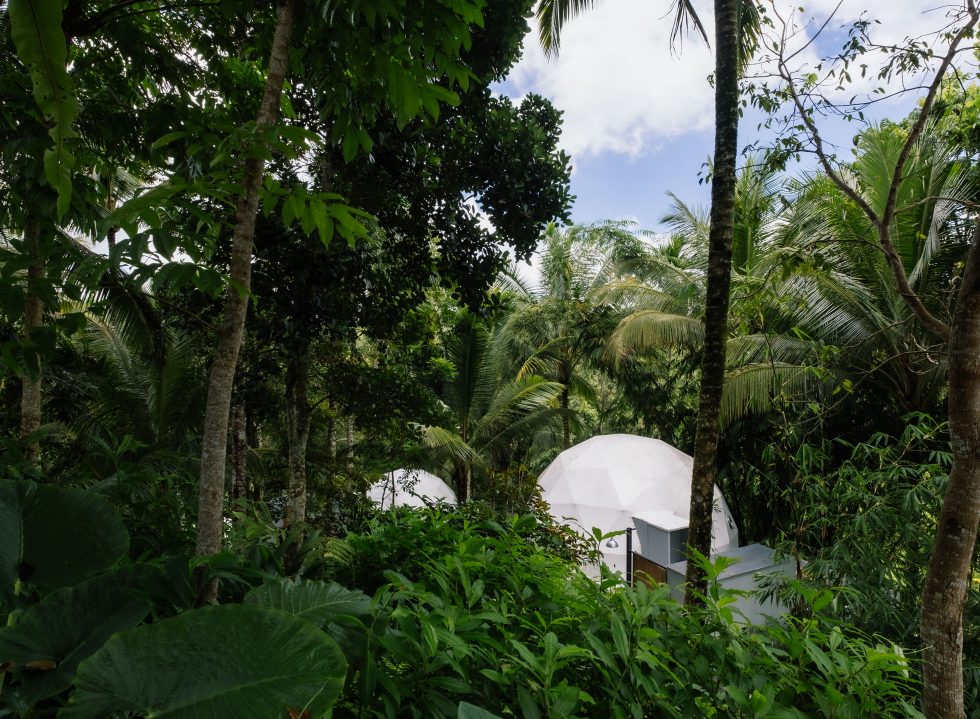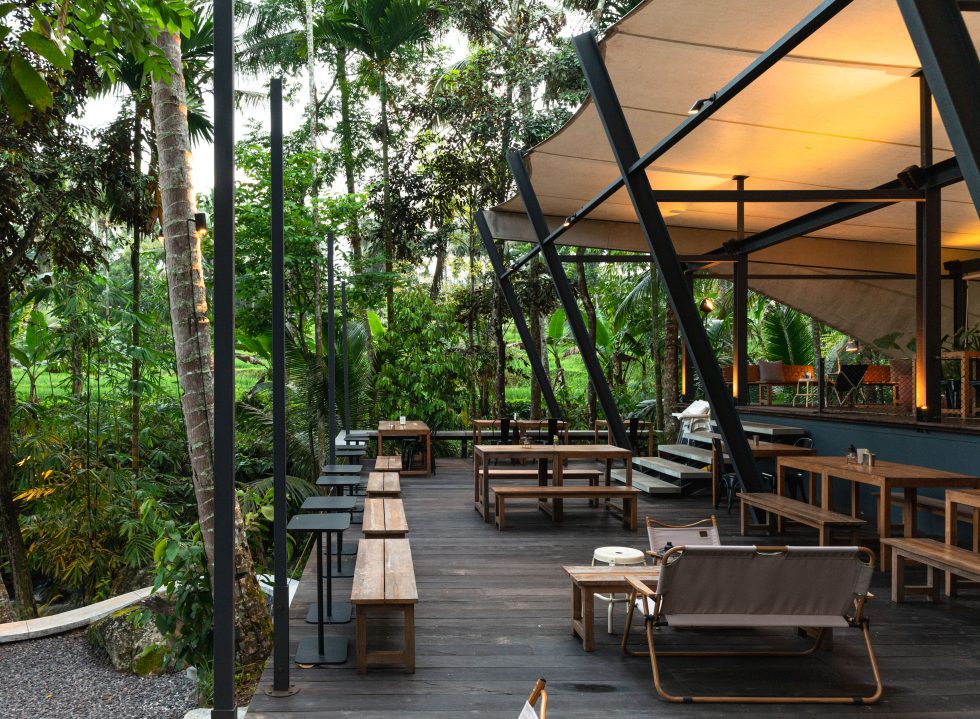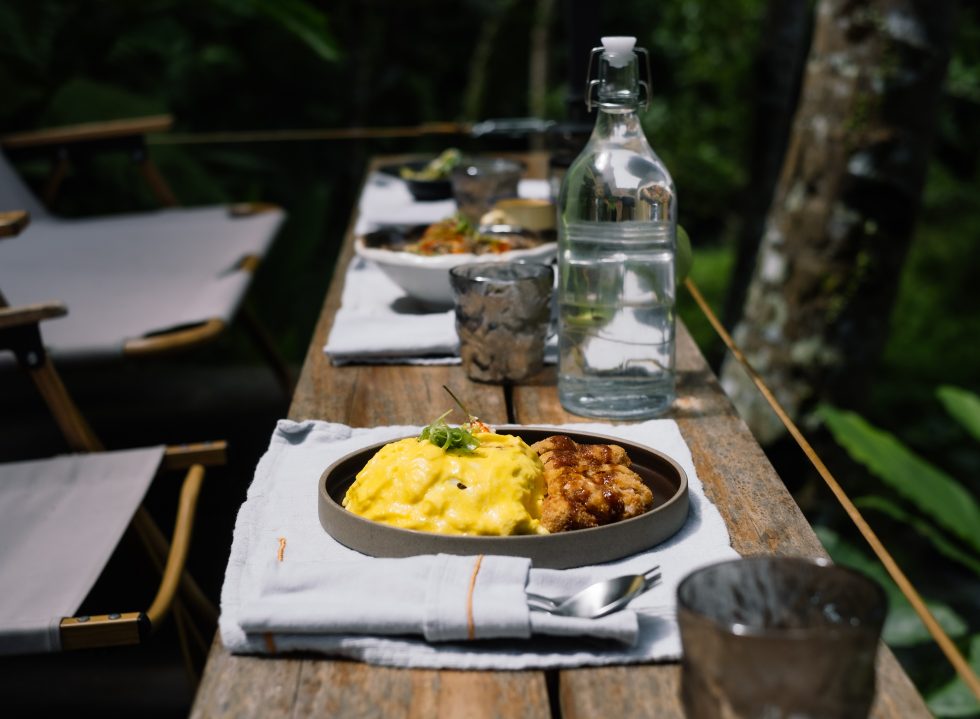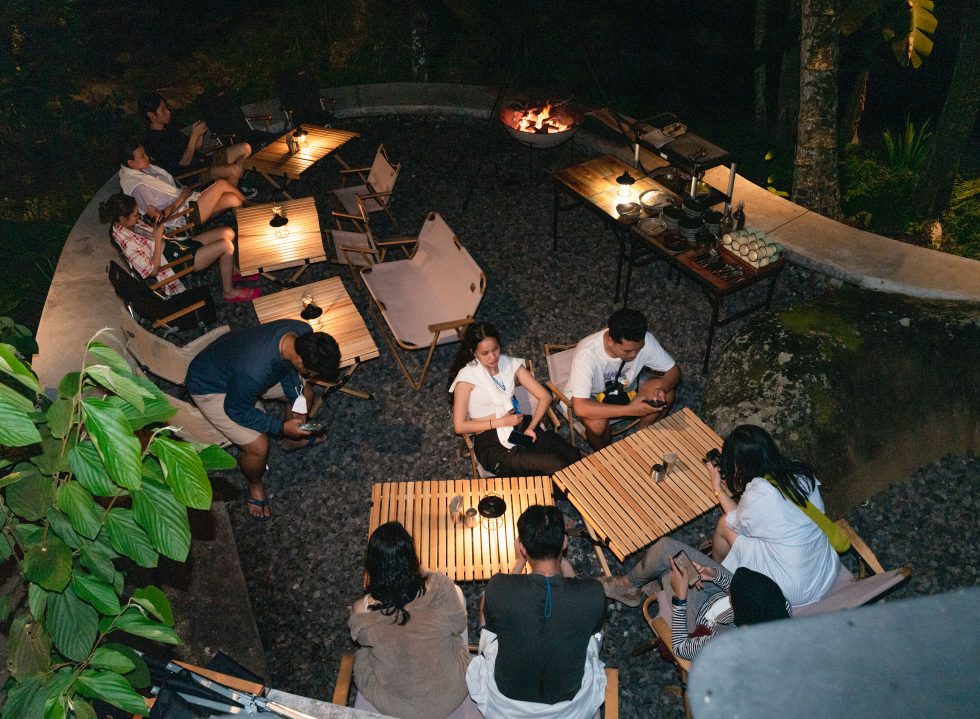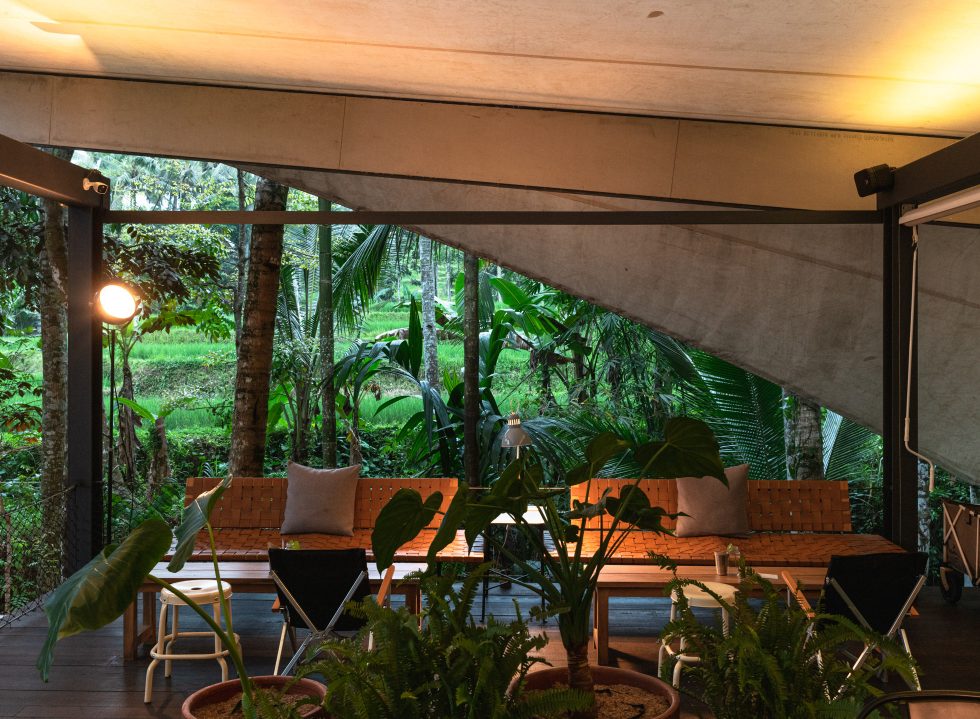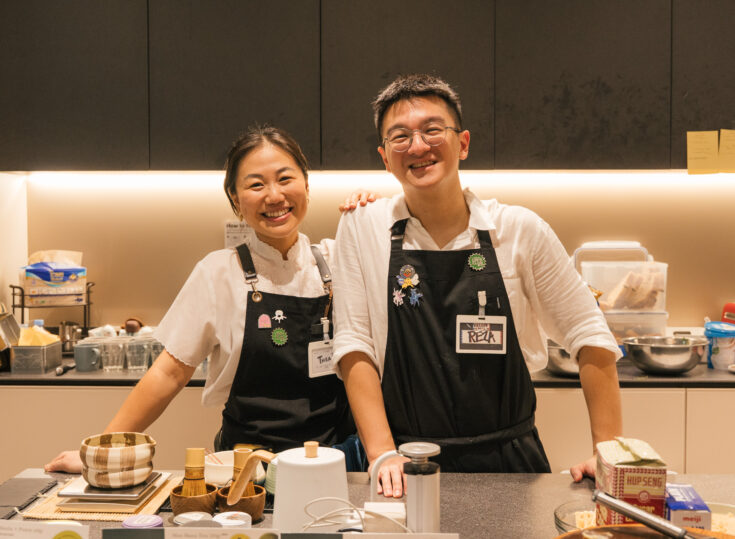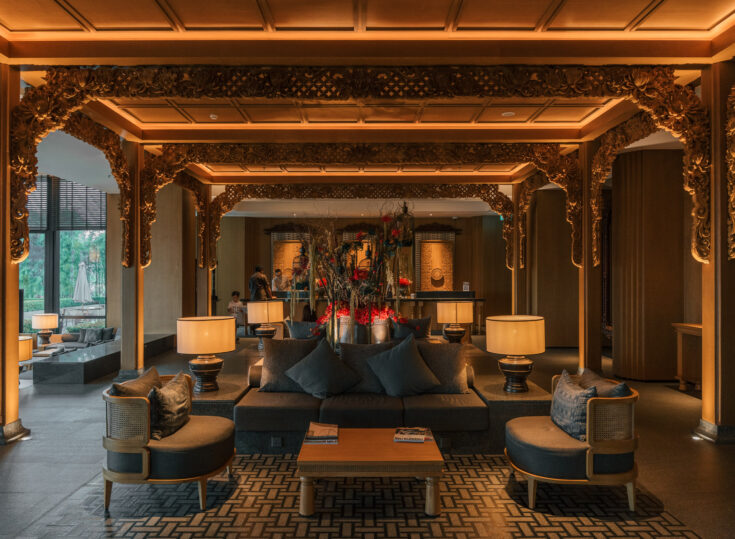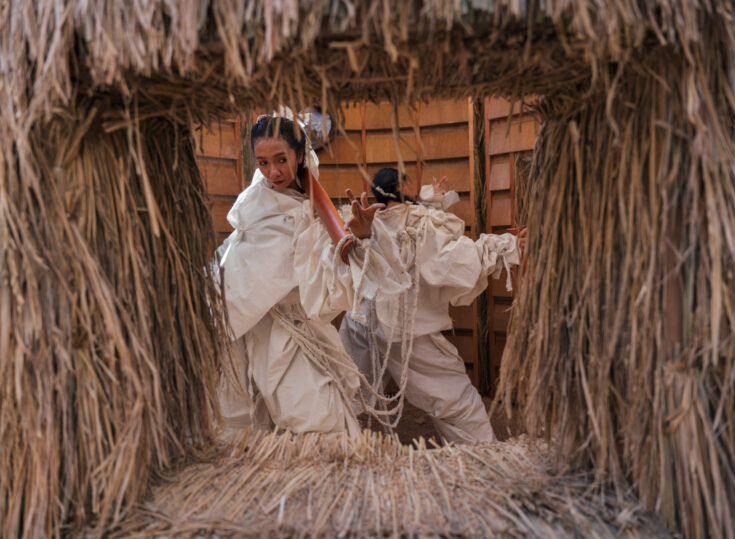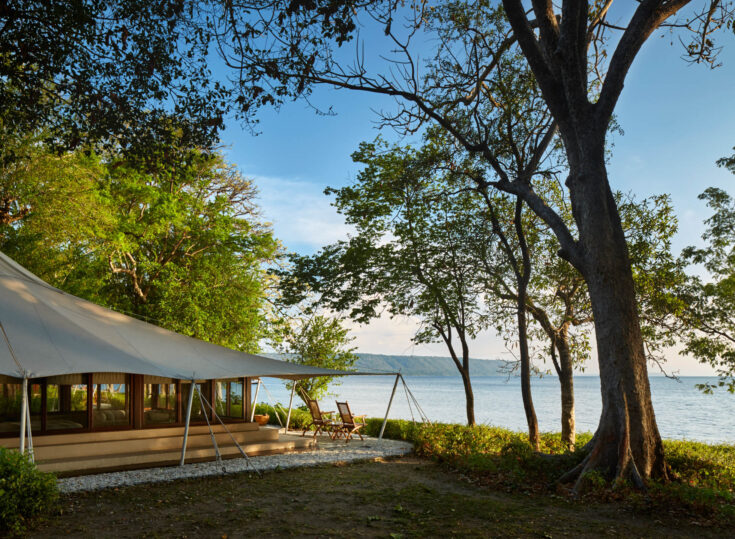The geographical draw of Banyuwangi can easily be categorised under three elements: pristine white beaches, lush tropical greenery and rugged sky-punching mountains. Located at the eastern tail end of Java island, the charm of the city of Banyuwangi is intrinsically tied to its landscape. Even its name, which is associated with the folklore of Sri Tanjung, is linked to the river. In Javanese, Banyuwangi means “fragrant water”.
First-timers to the city of Banyuwangi may be overwhelmed by the choices of natural attractions it offers. For greater clarity, one may ask: am I a mountain or sea person? If your answer is the former, then Lintang Luku Tent Resort serves as an ideal, not to mention strategic, accommodation to access your propensity for hiking.
The car ride from the award-winning Banyuwangi airport to the resort through winding, hilly roads that cut through villages and farms will build up the sensation of delayed gratification, especially when checking in in the evening. Sitting comfortably in the midst of lush tropical greenery, guests will be greeted by warm-glowing orbs perched on the hill in the distance that resemble a sparkle of fireflies.
Comprising 15 tents, Lintang Luku combines the excitement of outdoor camping with the charm of a secluded boutique accommodation that appeals to urbanites. Essentially, the rooms are divided into two types: the three-metre Pendar and the seven-metre Binar tent. Both types offer the same unobstructed view of the outdoors—the river, paddy fields or dense greenery, depending on the location of the room—set with a king-sized bed and en-suite bathroom. The only difference is that Binar comes with an additional sofa bed and tatami-style seating area to better take in the vista. The resort’s camping features are even more pronounced in the room service; meals are delivered in stainless steel bento boxes, and as temperature dips in the evening, guests are treated to a complimentary drink of hot chocolate or Thai tea served in camp-style thermal flasks.
Lintang Luku combines the excitement of outdoor camping with the charm of a secluded boutique accommodation that appeals to urbanites.
The name Lintang Luku refers to the Orion constellation. Traditionally, it has been the guiding group of stars for the Javanese to orient the planting season; it’s easy to see how agriculture has been the backbone of the city of Banyuwangi. Apart from the car ride to the resort, where small plots of gardens inundated stretches of quaint houses, Lintang Luku also resides beside small villages that often see its people busying themselves in the fields during the day.
During your stroll to the nearby village, don’t be surprised to find empty homes where the only signs of life are the farm animals acting as stand-ins for their human owners—oxen eyeing passersby warily from their stables and hens guarding their peep of chicks while scratching the ground for morsels—while its residents are out in the fields.
It’s difficult to fully experience Banyuwangi in just a few nights. But if it inevitably comes down to picking just one, hiking Mount Ijen for the view of Kawah Ijen at sunrise is undoubtedly the best choice. Even for the sea person, it’s a worthwhile trip that grants visitors a slice of life in Banyuwangi.
The guided hike, which can be booked through Lintang Luku, begins at midnight. The wake-up call arrives in the form of light bell chimes by the staff instead of door knocks or a loud phone call—luckily, there are no phones in the room and communication with the front desk is conducted through WhatsApp—that jolts you up unpleasantly.
Visitors begin the hike with porters and affable guides with keen understanding of local cultures. The climb will not be easy for beginners, and the cold mountain air before dawn makes one crave the comfort of the bed back in Lintang Luku. But what you sacrificed in sleep will soon be rewarded by the spectacle as you approach the peak. Like a cheer from Mother Nature, the dark sky switches to a regal spectrum of pink and purple at the crack of dawn.
It is at the top of Ijen mountain that the view best encapsulates the nickname of Banyuwangi: “the sunrise of Java”. Kawah Ijen resembles a giant bowl of soup underneath a swath of sky that is bluer than blue. To the right, the sun lights up Mount Baluran that is capped in a mass of clouds. When faced with such a sight, it’s only right to take the time to take it all in, especially after the gruelling climb. And Lintang Luku understands this sentiment perfectly.
The name Lintang Luku refers to the Orion constellation. Traditionally, it has been the guiding group of stars for the Javanese to orient the planting season.
After securing the perfect spot, porters begin setting up portable tables and chairs, laying out a humble breakfast of sandwiches wrapped in aluminium foil and hot tea and coffee carefully poured from a thermos. Here, one may enjoy a meditative moment or strike up a conversation with the guides as they bring focus to the miners that occupy the mouth of the crater.
Apart from its majestic view, Mount Ijen is also known for its sulphur, an important livelihood for the locals in Banyuwangi that dates back to the Dutch colonial period. Twice a day and by foot, the miners carry up to 90 kilograms of sulphur, which resembles blocks of yellow chalks, in wicker baskets. And ironically at close to 3000 metres above sea level, the inimitable landscape and history of the area offers a grounding escapade of Banyuwangi.
Come nightfall, there is not much to do but surrender yourself completely to rest and relaxation. Down at the resort’s open-air restaurant, Alas offers another comfort of city life through their expansive menu; city-dwellers might gravitate towards international options like the Japanese omurice or the lineup of pasta, while others may be more piqued to sample some of the kitchen’s local harvests in starters like corn chowder and quinoa salad, or their offerings of vegan-friendly meals.
When the weather permits, guests often sprawl and chill over at the bonfire area by the river. The warmth of the crackling fire can comfort tired bodies against the cooling air, while the soothing sounds of the running river ring like a nature’s lullaby, coaxing you to retreat back to the tent to have a restful sleep.
Lintang Luku doesn’t hide the fact it slots itself into the allure of luxury camping—or better known as “glamping”. Despite that, the resort still serves as a great base camp for one to comfortably explore Banyuwangi’s landscape. And of course, once you’ve experienced the challenging yet gratifying hike to Mount Ijen, it’s enough reason to plan your next trip back to explore what Banyuwangi has to offer.
